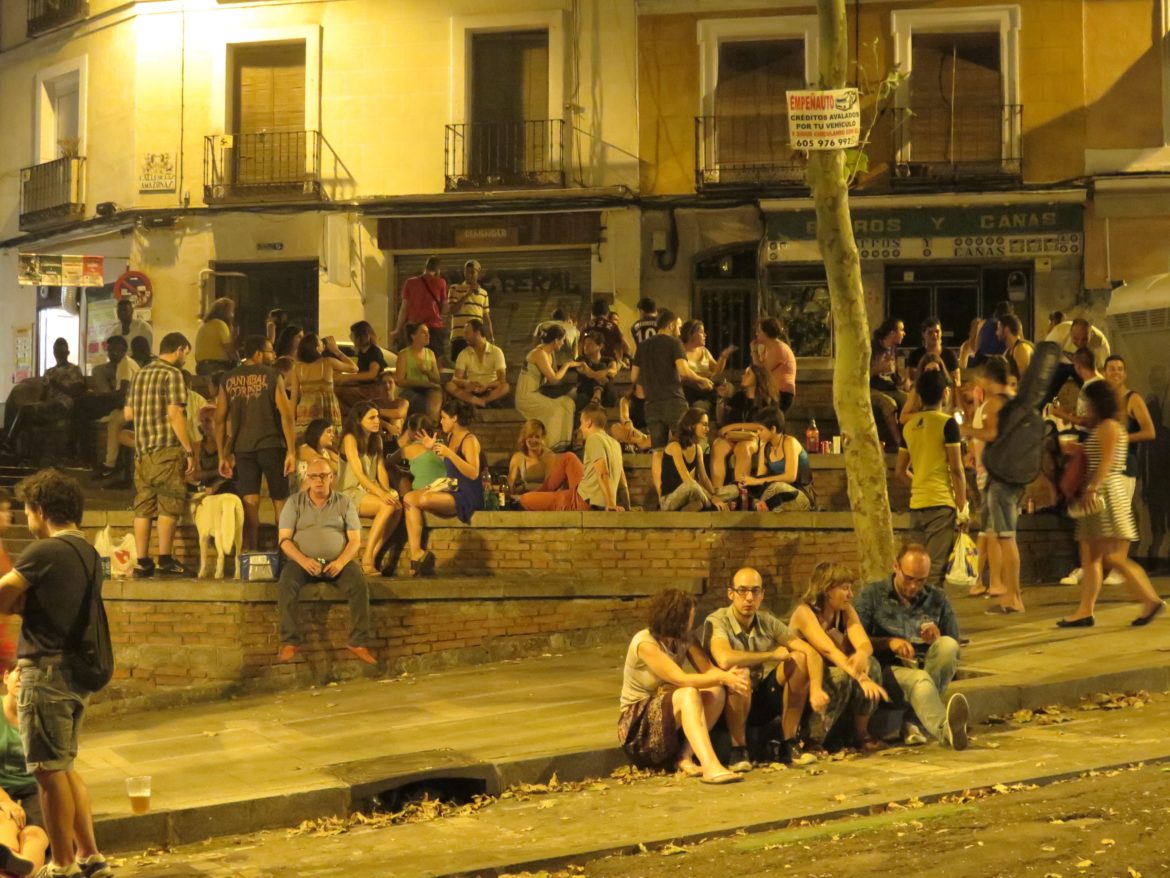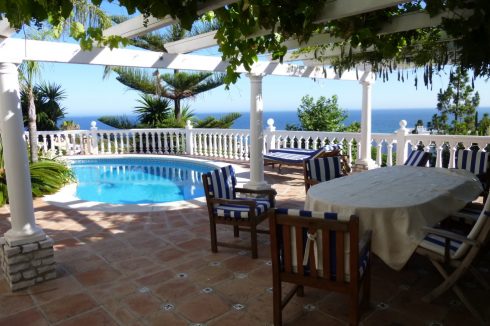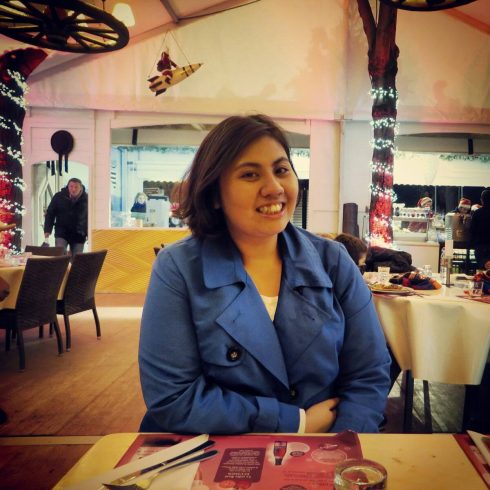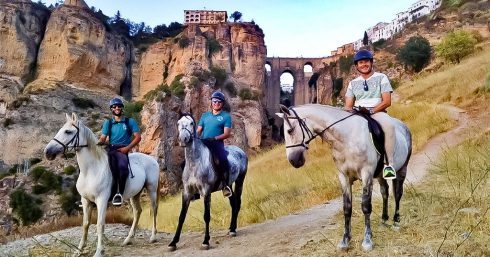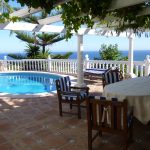WEARING masks in outdoor spaces is finally no longer required by law, bringing us to up to speed with the same rules that most other European countries maintained throughout the pandemic.
For young people, however, freedoms continue to be controlled due to stigmas that have been placed on them for years, and particularly during the pandemic.
Throughout the Covid-19 pandemic, the Community of Madrid has targeted young people with several campaigns, unashamedly allowing them to be labelled as vectors of contagion.
Youth have been – and are still being – used as scapegoats for mistakes made by the government’s handling of the Coronavirus crisis. And, the stigma towards young people is further being fuelled by their most basic desire – and arguably need – to socialise outdoors.
Any social occasion in much of the world is expected to be accompanied by alcohol but, in Spain, this basic aspect of getting together with friends is not one that extends to the most obvious of places to socialise: open spaces – especially when young people are involved.
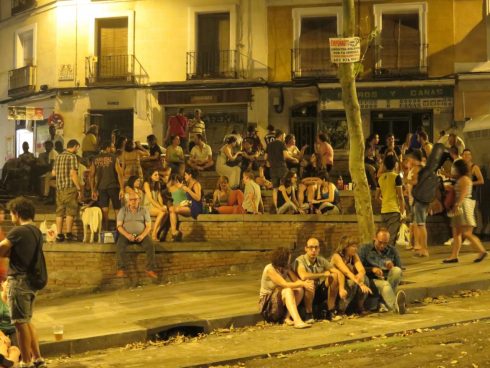
Reading the Madrid town hall website on alcohol consumption is like being lectured by a nagging, overprotective parent, which parallels the paternalistic character of the national government.
“It is completely erratic to think that alcohol does not harm health or that its negative effects pass quickly without leaving a trace. Nothing is further from reality. Discomfort the next day includes headaches, eye discomfort, irritation of the oral-pharyngeal mucosa, digestive problems, vomiting and motor problems.”
In other words, a hangover.
The paternalistic city council goes on to blame alcohol for clashes with the authorities, for risky sex and for fights as well as for school failure, career failure and kidney failure.
And, according to the city council, 63% of Spanish teenagers get drunk on average three times per month or, as they put it, “practically every weekend”.
So that must be a lot of collateral damage, yet this is just not what I see.
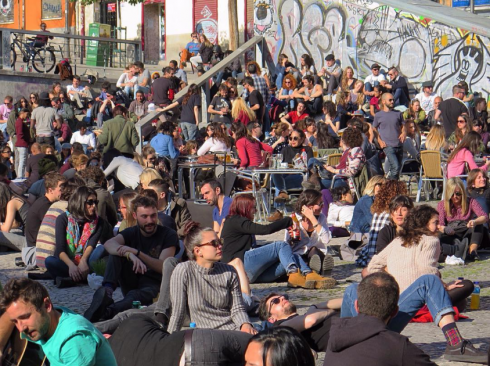
Spain’s attitude to alcohol, based on my personal observations over the past eight years, is mostly healthy.
Binge drinking is rare – people tend to drink small and slowly with a little bit of food, allowing the nights to carry on late without ever really getting smashed. People can argue but it rarely turns violent. The only violence I witness in Madrid tends to be police violence.
Yet, I’ve noticed an increasing general intolerance towards drinking and it began in Madrid.
Madrid was the first region in Spain to start fining people for drinking in the street.
The Law on Drug Addiction and Other Addictive Disorders (the drinking bit is just a tiny part of this law and was coined the anti-botellón law) came into effect on 30 July 2002.
From then on, municipal police were able to fine anyone €600 for drinking in the streets.
In total, accumulated fines from 2020 alone could amount to up to €25 million euros, half of what the Isabel Zendal pandemic hospital cost. I can’t find any official data about what actually happens to this money once collected by the state.
Rajoy, the PP mayor of Madrid in 2002 pledged to “re-educate young people who did botellón by visiting centres housing people with paraplegia or tetraplegia as a result of alcohol misuse.” Seriously.
Perhaps the paternalistic approach is working, though. The latest figures show that 63% of Spanish teenagers get drunk around three times per month, which is certainly less than the 78% recorded by the Anti-Drug Agency in 2002. However, the reasons for this decrease may not actually be connected to the anti-botellón law after all.
A 2018 report from Berenberg Research found that respondents in their teens and early 20s were drinking over 20% less per capita than millennials did at the same age, who also drank less than baby boomers did at the same age.
Reasons for this include an increased awareness of the impacts of alcohol on mental health as well as fear of being photographed or filmed on mobile phones.
This global shift in alcohol consumption demonstrates little but a convenient coincidence for the Madrid City Council, yet they seem determined to stick to their strict policing of drinking.
The rate of fines is at an all-time high and is pushing friends to go inside each other’s homes.
Even during the pandemic where fresh air and outdoor socialising is more important than ever, the anti-botellón law persists.
Following the end of the State of Emergency on May 9 when scores of excited young (and middle-aged and old) people across Spain took to the squares to celebrate, some of whom had a drink in-hand, there was a public outcry.
At the stroke of midnight, photographers headed out to capture the moment in the most predictably biased way possible, publishing the most controversial content they could capture (clicks = cash in a capital-driven media platform), thus fuelling the anger of those with the view that botellón should be banned, “especially in a pandemic”.
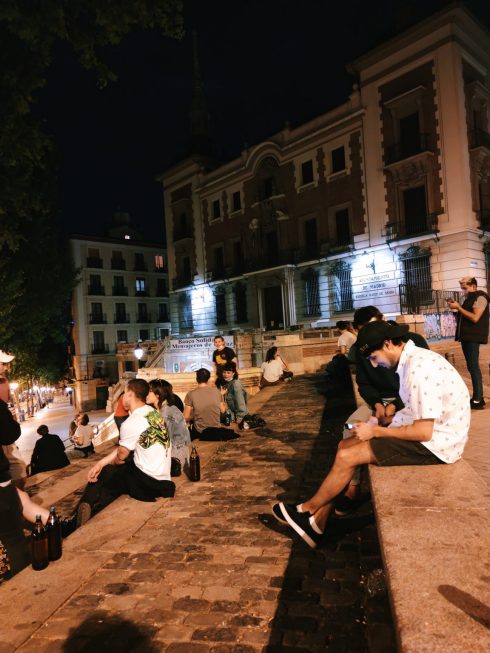
In the days and weeks that passed, so many were convinced there’d be a spike in case numbers. There wasn’t.
It’s reported widely that outdoor social settings significantly reduce the chance of catching airborne viruses, especially if the air is flowing as it is in a street, rather than in a patio, for example.
What there was a spike in, however, was a contempt for young people, which echoed the same resentment associated with those who do botellón and those in the Covid campaign I mentioned earlier.
The main arguments against botellón.
- It causes noise and litter. (Noise, yes, that’s a problem. But litter? That can be solved by education and providing more bins)
- It doesn’t encourage frequenting local bars and restaurants. (Making something illegal in order to direct money towards something else is an undemocratic monopoly – the opposite of the liberal economy)
- It brings large groups of people together. (But those people are outdoors)
The main arguments for botellón.
In a recent survey on MNF’s Instagram stories, 78% voted for botellón to be legal again (90% of MNF’s IG audience is 18-44 and 10% are 45+). Here are some of the arguments shared.
- The anti-drinking-in-the-street measure discriminates based on income because it only allows alcohol to be consumed outdoors by those who can afford a table at a bar. Paying €3 per glass of wine when a bottle and a pack of ice from a local shop costs just €5 total seems an obvious choice to those on low incomes – young people, for whom socialising has been hindered by the pandemic at a pivotal time in life.
- It would reduce the ‘super-spreader’ stigmatisation of young people and lower-income people.
- Terrace space is limited. We all know how difficult it is to find a terrace on an evening in Madrid, even on a Monday evening in a quiet neighbourhood.
- It’s safer than socialising indoors.
- Legalising botellón would free up police forces to tackle serious crime, domestic abuse and political corruption.
- We can live in a freer, less controlled, less paternalistic society.
- It’s fun!
Keep this conversation going with your friends, colleagues and family over a botella!
This article is by Leah Pattem, the founder of Madrid No Frills, an independent Madrid-based platform for under-reported stories from underrepresented communities.
To discover stories that reveal the grittier, real side of Spain’s capital, follow her on Facebook and Instagram and support the Patreon page.

